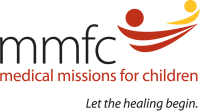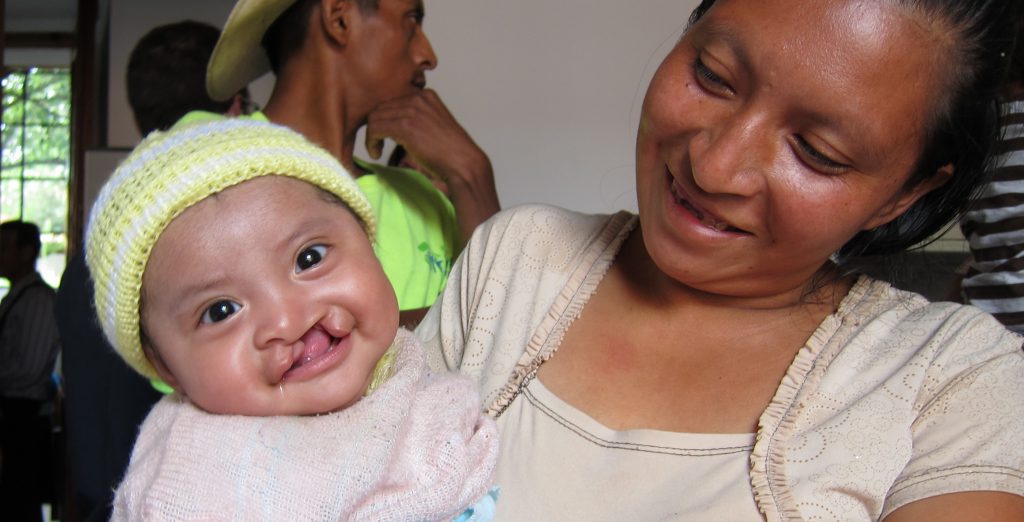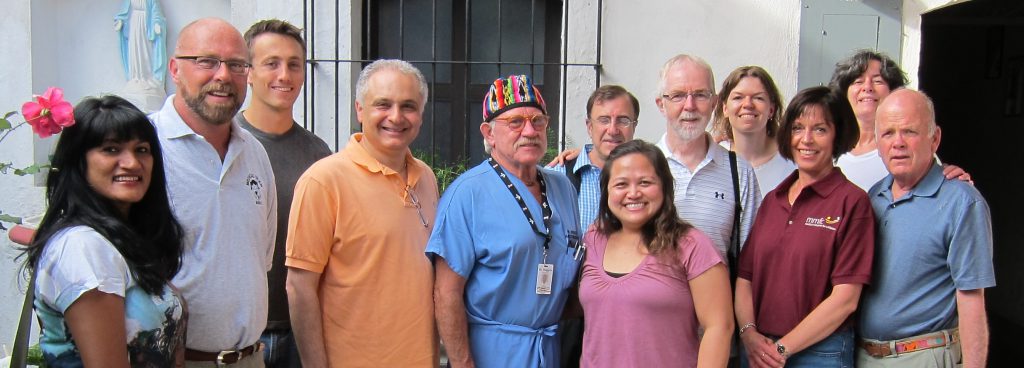
The MMFC June Guatemala Team (L to R: Mohani Ramsahai; Andrew Shayne, Sam Seymour; Charles Badaoui; Gary Ruggera; Piero Caruso; Lorelei DeGracia; Bob Ward; Karin Oomen; Patsy Donlan; Deb Rideout; and EJ Wech. Missing from photo: Reza Jarrahy)
Sam Seymour is a graduate of Vassar College and currently performing research at an immunology lab in San Diego, California. He served as administrator on the June trip to Antigua, Guatemala – his first trip with MMFC – and is hoping to pursue a career in medicine. Here is Sam’s story.
Mid June, a small contingent of thirteen volunteers made their way to Antigua, Guatemala for what was MMFC’s second mission to Guatemala this year – a follow up to the first trip in January. This was not only the first time that MMFC has sent a team to the same location twice in one year, but also the first time that MMFC volunteers shared the surgical ward of Santo Hermano Pedro Hospital with another medical team for the week. Both teams did an excellent job of working together not only to accommodate one another’s needs, but also to augment one another’s work.
The MMFC team arrived in Guatemala City late Saturday afternoon to a warm, sunny day. Confronted by new customs regulations that had literally been implemented that day, the team spent hours attempting to release bags of pharmaceutical drugs and equipment. Eventually, we left the supplies behind with the hopes of retrieving the bags another day. With team leader Charlie Badaoui guiding the way, we wound our way through a myriad of taxi drivers and vendors selling plastic bags of chilled water from dusty backpacks, and hauled ourselves into a large passenger van bound for the city of Antigua.
After a relatively smooth two-hour ride through Guatemala City’s dense rush-hour traffic, the shocks of our passenger van were suddenly strained to capacity as we reached the limits of Antigua’s ancient cobblestone streets. Antigua – once the capital of the Spanish Central American territory – is a prosperous city rich in history. However, despite a thriving tourism industry and frequent visits from international students wishing to immerse themselves in Spanish-speaking culture, many of Antigua’s surrounding villages are subject to extreme poverty. The reality of life in villages throughout Guatemala is that reaching western medical care is typically a multi-day ordeal. Such care requires advanced planning and funding, not only for the care, but also for travel, food, and lodging. Combined with inadequate or insufficient nutrition, these factors lead to frequent occurrences of underdeveloped facial structure in infants who will never receive needed surgical attention. The incidences of cleft lip and cleft palate in Guatemala cause nutritional, hygienic, and social issues among the 1,000’s of untreated individuals.
On our first full day in Antigua, the MMFC team performed rigorous screenings of over 75 patients from far and wide. Over the next five days, with two dedicated operating rooms, the surgical and dental teams performed an incredible 59 procedures. For a small team to treat nearly 80% of the individuals seeking treatment while maintaining quality patient care demanded flawless, efficient communication between team members. From the perspective of an individual one-step removed from the actual medical practice, I found myself in awe at the seamless transition for each patient from pre-op, to the operating room, to the recovery floor, and finally to their bed in the hospital ward. Watching the MMFC clinicians at work was truly inspiring.
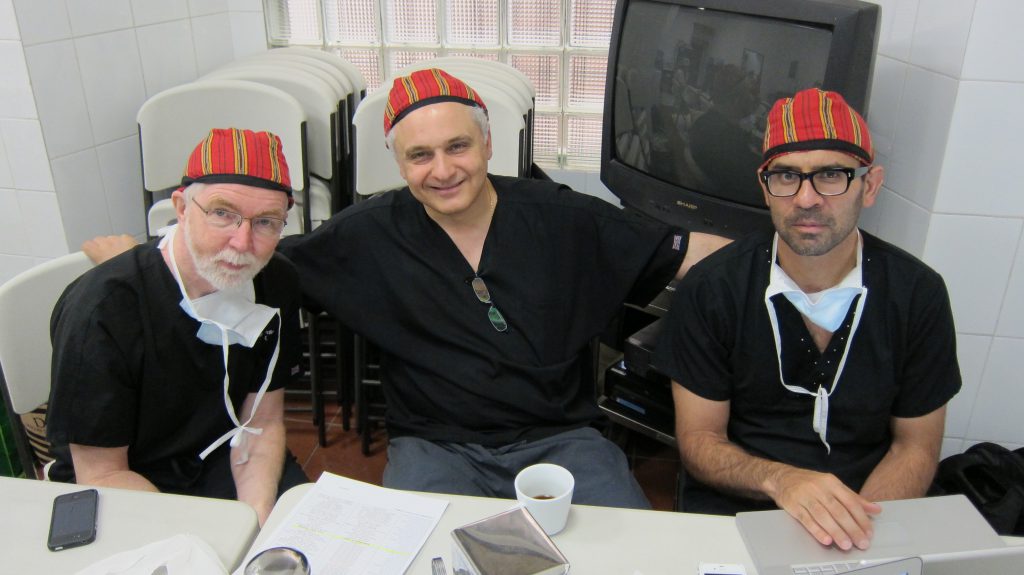
Sandra was one of the patients to receive treatment from the expert MMFC team. Born in February of this year (2012), she was just a little shy of 5 months old at the time of her surgery.
Sandra found the surgeons performing the screening very amusing.
Sandra – the youngest of five children – and her parents hail from the outskirts of Salamá, a city of approximately 40,000 people in the department of Baja Verapaz in central Guatemala. Sandra’s father works long days harvesting a variety of crops, most notably cardamom, (Guatemala is the world’s top producer/exporter of cardamom). The family’s initial contact with MMFC and their trip to the hospital were facilitated through Partners for Surgery, an international nonprofit health advocate with a presence in many developing nations. MMFC also relies on the excellent outreach, patient education and recruitment of TESS Unlimited. While Sandra’s condition was not a medical emergency, PIH determined that an ambulance would be the most reliable and efficient means for Sandra and her parents to make the trek from Salamá to Antigua. Sandra’s surgery was without a hitch. She left the hospital the day following her surgery with a giggle, as bright-eyed as ever.
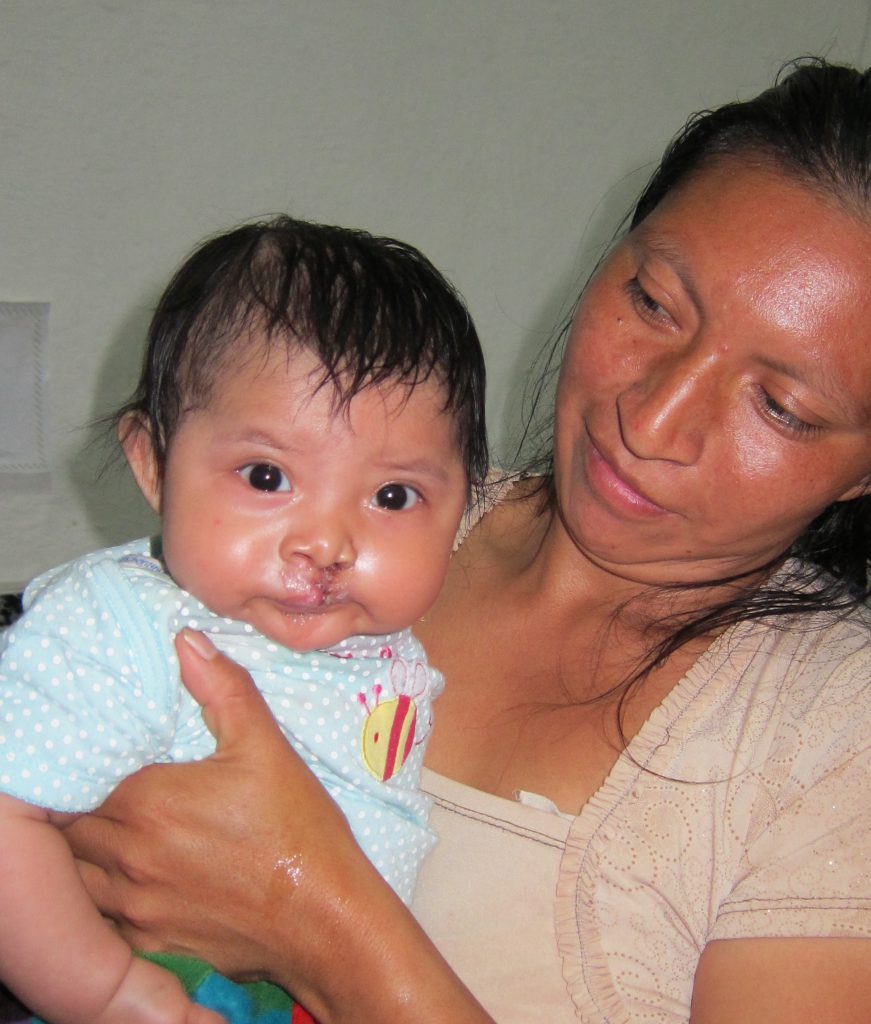
Sandra, post-surgery and right after a long nap
It was a privilege to be a part of an operation offering highly-skilled labor at no cost to patients; labor which, until seen first-hand, can be hard to recognize as life-changing. After what is typically an hour of surgery, MMFC patients leave the OR with life-changing results allowing them to lead their lives to the fullest.
MMFC will return to Antigua, Guatemala in January 2013 and again in June 2013.
